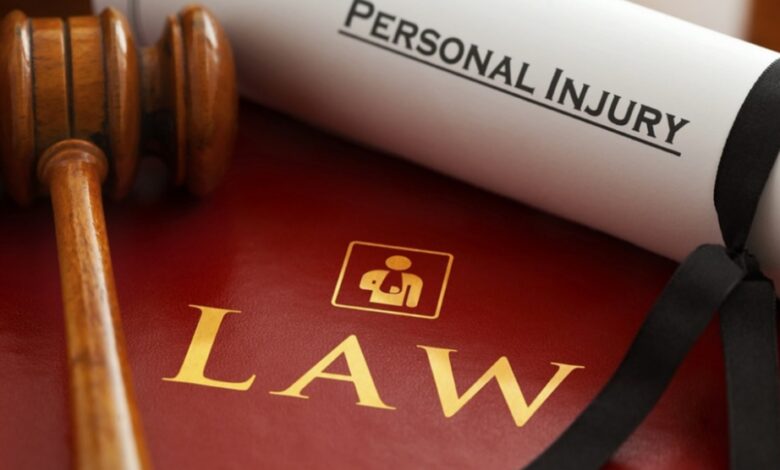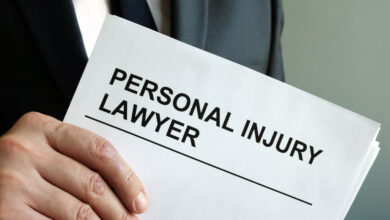Can Someone Sue You for Tripping on Your Property?

If someone slips and falls on your property, they may sue for damages. But the case is not usually that straightforward.
There are laws and rules to protect property owners and those who suffer injuries due to someone else’s carelessness. The area of law that covers these rules are Tort law and Premises Liability Law.
These laws do not presume that you are liable for another person’s injuries just because they happen on your property. Similarly, the ordinances do not mandate that you pay for their medical bills or other damages.
Premises liability specifies some criteria for the individual who fell to be entitled to compensation or a settlement from you. Competent slip and fall lawyers working in the field of personal injury law will be able to provide you with further details.
What is a slip and fall injury claim?
A slip and fall claim can be referred to as a type of personal injury claim. This type of personal injury lawsuit happens when someone trips or slips on someone else’s property and is hurt. It’s a kind of wrongdoing known as tort.
An injured party may seek monetary damages from the property owner or occupier in the event of a slip-and-fall accident. There are different types of slip and fall accidents, which all result in varying degrees of injuries.
In the case of a personal injury lawsuit, you may need to hire a lawyer. PERSONAL INJURY LAWYER may be able to defend the property owner by establishing whether the property owner owes the injured party duty of care.
Identifying the responsible party
Slip-and-fall incidents and other accidents caused by hazardous circumstances on another’s property are covered under premises liability laws. The key element in these cases is determining who was at fault.
Before an injured person can hold you legally liable for their injuries, the following must occur:
- That the property owner was aware of the hazardous state and did nothing to remedy it (negligence)
- As a “reasonable person” would have, the property owner should have known about the hazardous state and taken precautions to avoid harm.
- That the property owner was responsible for the hazardous situation that led to the accident
Frequently, liability is determined by common sense. Most judges and juries decide whether the property owner or occupant was cautious by determining whether the owner or occupant took the necessary precautions to ensure the safety of the property.
The legislation focuses on whether the owner consistently maintains the property safe, clean, and up to code while reaching this assessment.
Other variables that may be considered while evaluating fault may include the following:
- How long had the hazardous state lasted, and did the owner have sufficient time to become aware of the problem and remedy it?
- If the owner attempted to resolve the issue, were their efforts reasonable and appropriate?
- Was the victim’s behavior irresponsible, thereby contributing to the accident?
If the victim disregarded posted warning signs or behaved recklessly, they might be held responsible for the accident. Some jurisdictions have what is generally known as “comparative negligence” rules. With such a rule, the injured party may also be found partially liable in their personal injury lawsuit. Comparative negligence laws will decide who is entitled to compensation and how much they are eligible to receive.
Can I be held responsible for an injured trespasser on my property?
A trespasser is someone who enters another person’s property without permission. If a trespasser is injured on your property, the law offers them little protection. The property owner must only ensure they did not intentionally harm the trespasser.
Courts might consider the following when determining whether there was intentional harm.
Are there any dangerous conditions?
If the owner is aware of a hazardous situation on their property and fails to rectify it or warn the trespasser, they may face legal consequences.
This is known as “willful or reckless wrongdoing.” The definition of “willful” is any behavior that disregards the safety of others.
How can you verify that the individual was a trespasser?

It might be challenging to determine whether a person is a trespasser since they may be permitted to enter a property but not a restricted area. This is an area that typically requires that you hire slip-and-fall lawyers.
For instance, a child playing on a vacant lot on your property without your consent is not a trespasser. Even though the child did not seek your permission, they may not be considered trespassing.
However, if such a child climbs onto your roof while playing in the vacant lot, they may be considered a “trespasser.” The court might rule that such a child committed trespass when he went onto your roof.
If an accident were to occur while the child was on your roof, he would be labeled a trespasser. You may not be liable to pay for damages to trespassers.
Licensee versus Invitee
The reason for a person’s visit determines the duty of care you owe them and your obligation to safeguard them from risks and hazards if you allow them into your property.
When you invite guests to your property for a social event, they are called ‘licensees‘ under the law. By law, the following people are considered licensees:
- Your house guests
- Kids playing on vacant lots
- Halloween trick-or-treaters
- Police officers, firefighters, or other utility workers
By law, you are obligated to your licensees to secure them from any risks and hazards on your property. Such warnings allow them to take reasonable precautions to prevent injuries.
However, you are not required to conduct an inspection or eliminate these hazards before their arrival. By giving a warning, you reduce the chances of getting sued if they are wounded, notwithstanding your warnings.
However, if you invite someone to your property for commercial purposes, they are termed an “invitee.” An invitee is distinct from a licensee.
You have a more robust duty to safeguard an invitee from risk and harm on your premises than a licensee. If an invitee arrives at your property, you are required under the law to eliminate any risks or dangers before their arrival.
You need to conduct an inspection before an invitee visits you. After the inspection, you must remove all the dangers you discovered before the visit. Unlike in the case of a licensee, merely warning an invitee is not adequate.
If you have questions, a personal injury attorney may explain these distinctions in further detail.
Final Thoughts
As a property owner, you must take precautions. Personal injury claims are almost unavoidable. Despite your best efforts, a slip and fall may occur on your property leading to a personal injury case. If that happens, consider hiring a slip-and-fall lawyer.
If an accident occurred on your property, a personal injury lawyer could assist you in preparing your defense. Accident and injury lawyers may also help you prove you were not negligent and not responsible for the accident.



